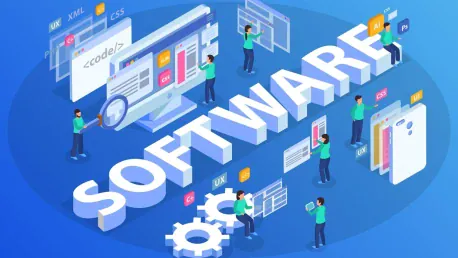Open-source software has become a cornerstone of modern technology, often celebrated for its collaborative nature and the freedom it offers users. While some advocates emphasize the philosophical or ethical dimensions of open source, its success in the competitive landscape of software development hinges on practical utility. This article explores how open-source software delivers tangible benefits that resonate with developers and businesses alike, surpassing the importance of its ideological allure. The pragmatic benefits of open-source software have become the defining factors of its success, significantly outweighing any moral arguments for its adoption.
The Pragmatic Approach in Software Development
In the tech industry, the practical benefits of software typically outweigh its ideological origins. Developers prefer solutions that offer unique, differentiated features, helping them build robust applications efficiently. This pragmatic attitude is key to understanding why open-source software must demonstrate concrete advantages to thrive. Significant investments within the tech sector, particularly in areas like artificial intelligence (AI) and cloud computing, highlight the industry’s preference for practicality. Companies like AWS, which prioritize customer convenience and effective solutions, often attract more attention and funding compared to those adhering strictly to open-source models.
Rowan Trollope, CEO of Redis, underscores the pragmatic attitude prevalent among developers. The focus remains on the functionality and efficiency of the software rather than its licensing model. By emphasizing practical benefits such as flexibility, cost savings, and the ability to customize software to specific needs, open-source solutions can attract a broader user base. This approach ensures that developers and businesses alike appreciate the tangible advantages that open-source software offers, facilitating its widespread adoption and success in varied technological landscapes.
Case Studies: AWS and Hugging Face
AWS has evolved its relationship with open-source communities, moving from a position of criticism to one of balanced engagement. By making open-source solutions more accessible and integrated for enterprises, AWS has seen increased customer engagement and profitability from its services. This shift towards a practical approach highlights the benefits of aligning open-source principles with customer needs. Under the leadership of David Nalley, AWS has worked diligently to ensure that open-source tools are seamlessly integrated within their cloud services, offering practical solutions that meet diverse business requirements.
Hugging Face represents a success story in the open-source AI domain. By positioning itself as a central hub for AI models, it has managed to profit while promoting open-source principles. However, even Hugging Face’s model includes contradictions regarding open and closed-source elements, underscoring the complexity of the open-source landscape. Despite these discrepancies, Hugging Face’s emphasis on practical benefits has allowed it to thrive, demonstrating that a pragmatic approach can lead to significant success and industry recognition. This example serves to illustrate that while ideological purity is commendable, the real-world benefits provided by open-source solutions are what truly drive their adoption and success.
The Role of the Linux Foundation
The Linux Foundation stands out for its unwavering advocacy of open-source principles. Funded by corporate contributions, it emphasizes the substantial economic value open-source software provides to companies. This model demonstrates the power of aligning open-source advocacy with clear, pragmatic business benefits. Jim Zemlin, Executive Director of the Linux Foundation, underscores the practical advantages of open-source. His stance shows how companies benefit economically from both contributing to and consuming open-source software, highlighting the alignment of open-source principles with business interests.
By focusing on the tangible benefits of open-source software, the Linux Foundation has succeeded in promoting its widespread adoption across various industries. The emphasis on cost savings, innovation, and flexibility has resonated with businesses, allowing them to see the clear advantages of integrating open-source solutions into their operations. This practical approach ensures that open-source software remains relevant and influential, driving technological advancements while providing significant economic value to organizations worldwide.
Ideological vs. Practical Advocacy
Differences in open-source advocacy styles reveal varying levels of appeal within the community. Nonprofits like the Free Software Foundation maintain a heavily ideological stance, focusing on the ethical dimensions of open source. While this approach attracts those deeply committed to these principles, it may have limited appeal for broader audiences. In contrast, organizations emphasizing practical benefits rather than ideological arguments have a broader reach. They successfully attract more developers and businesses by illustrating the tangible advantages open-source software offers. This pragmatic approach allows for a more inclusive and widespread adoption of open-source solutions, driving their success in diverse technological environments.
By highlighting the concrete benefits such as cost-effectiveness, increased flexibility, and the potential for innovation, practical advocates can showcase the true value of open-source software. This strategy not only broadens the appeal of open-source solutions but also ensures their long-term viability in a competitive market. The focus on real-world advantages makes it easier for businesses to justify adopting open-source software, ultimately leading to greater acceptance and success within the industry.
Practical Benefits Lead to Success
Open-source software has become a fundamental aspect of modern technology, frequently praised for its collaborative spirit and the freedom it grants users. While many proponents focus on the philosophical or ethical aspects of open source, its triumph in the competitive software development arena relies heavily on its practical applications. This article delves into how open-source software provides real-world benefits that appeal to developers and businesses alike, surpassing the emphasis on its ideological appeal. The realistic advantages of open-source software have emerged as the key elements of its triumph, significantly overshadowing any moral justifications for its adoption. The widespread use and acceptance of open-source software can be attributed to its adaptive nature, cost-effectiveness, and ability to be customized to meet specific needs. These attributes ensure that open-source solutions are not only viable but often preferable in various professional ecosystems. Consequently, the practical benefits of open-source software play a pivotal role in its widespread success and acceptance in the technology landscape.









